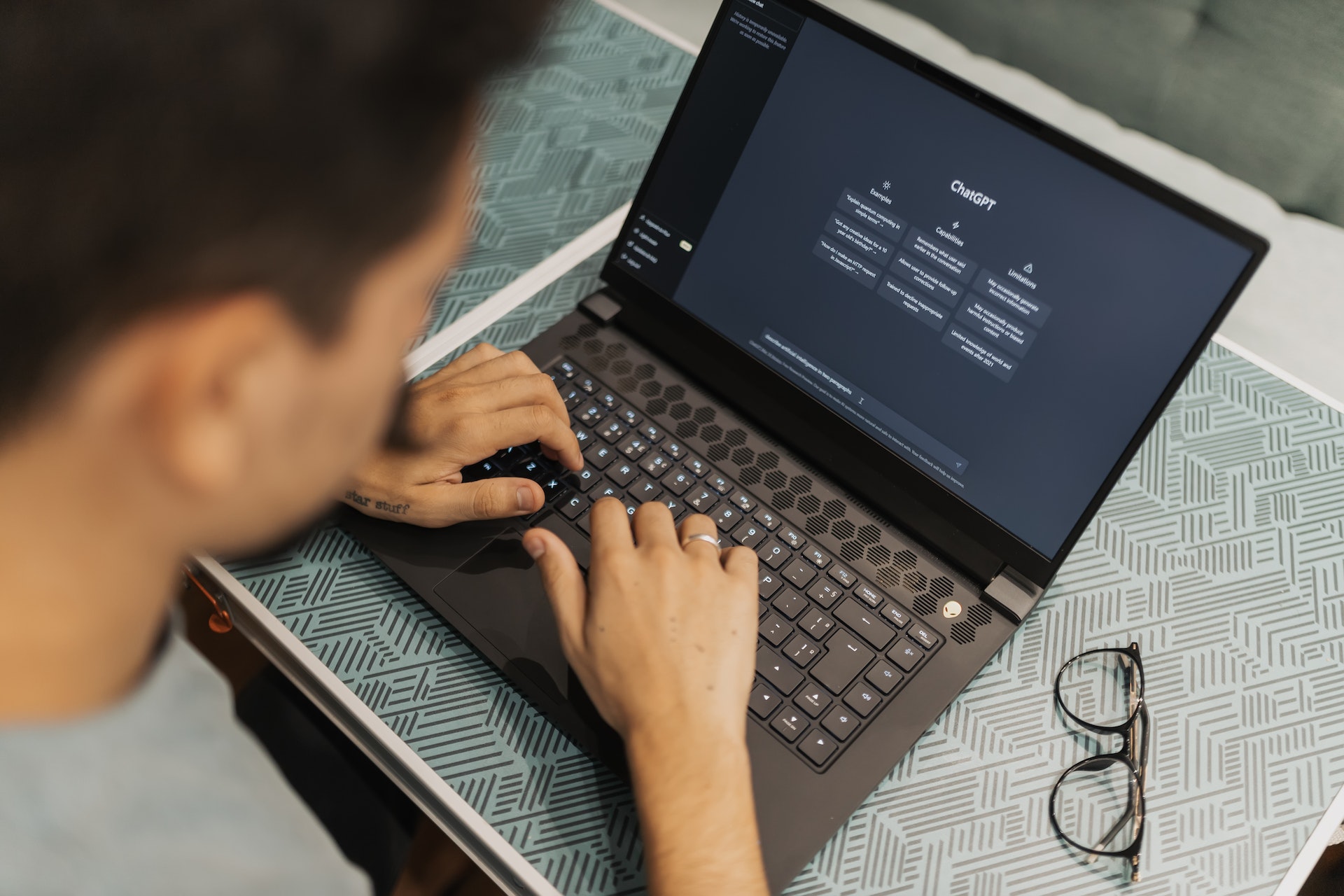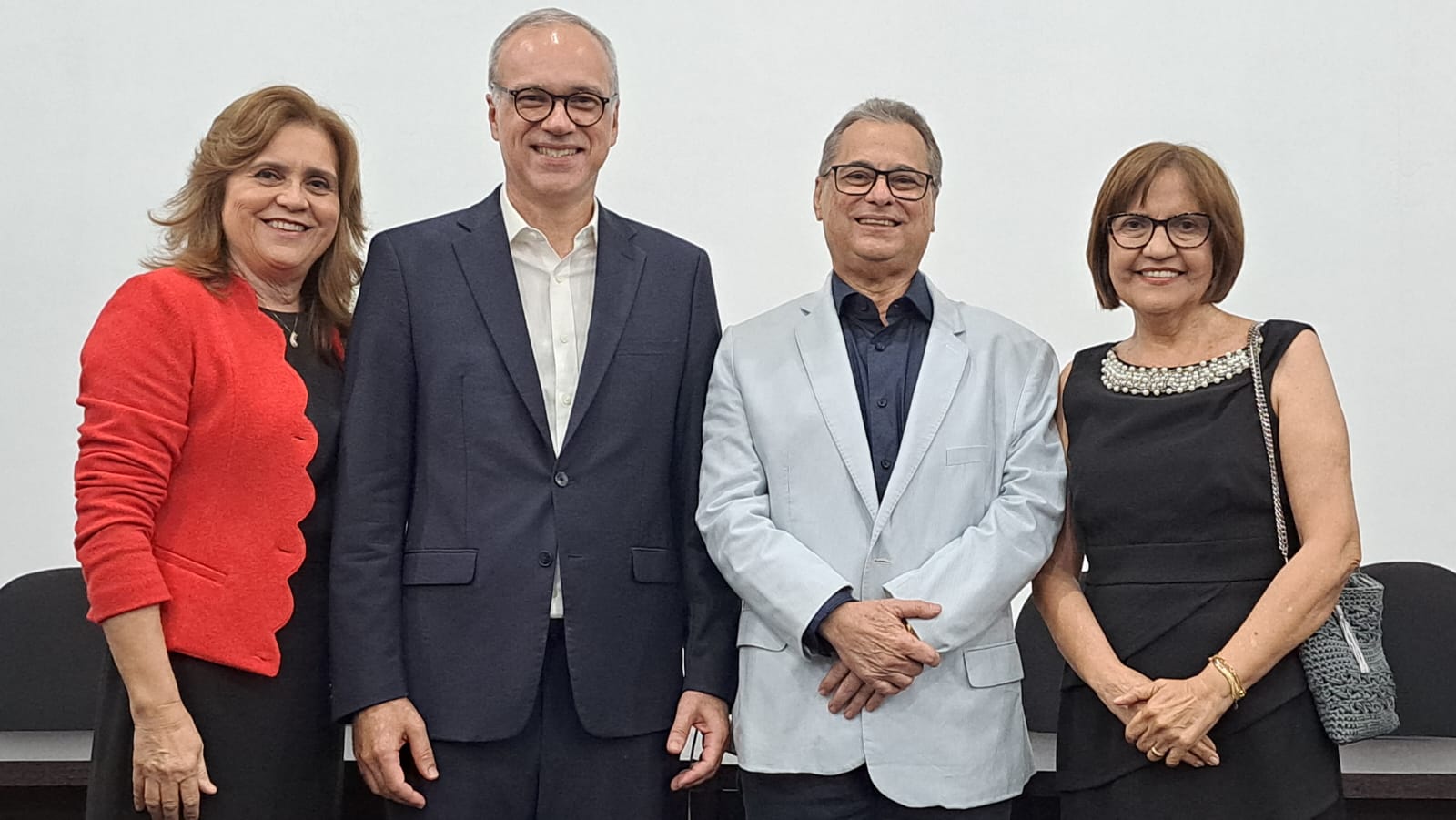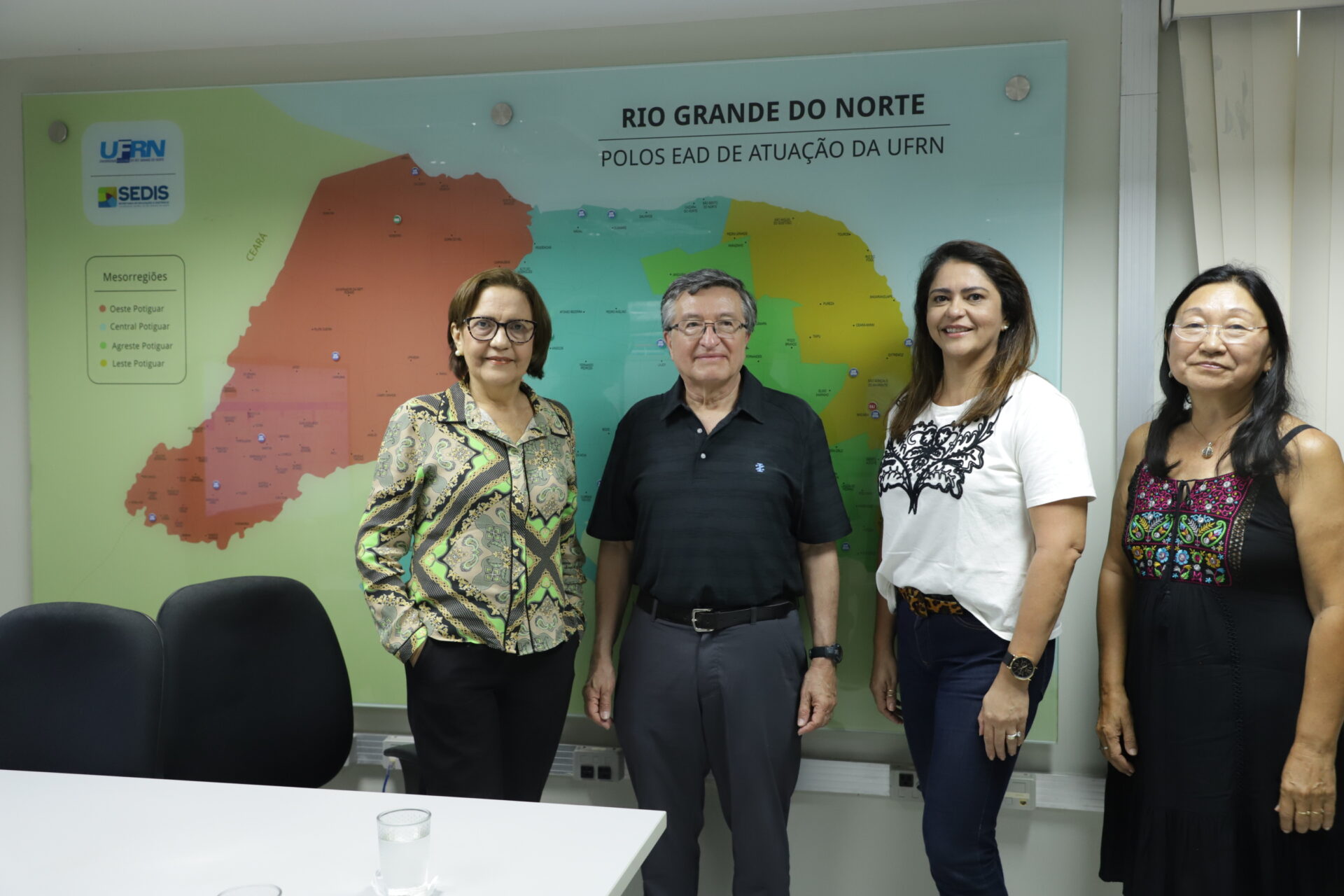UFRN, IFRN, UFERSA and UERN discuss proposals to advance the internalization of higher education in the state
To an audience made up of coordinators from almost 30 hubs that offer distance higher education courses in Rio Grande do Norte, through the Open University of Brazil Program (UAB), the general coordinator of Hubs and Educational Technologies, from the Distance Education Directorate (DED/CAPES), Alexandre Povoa, presented the proposals for strengthening this type of education at the municipal, state and federal levels. “We need to ensure that more people from the countryside, who live far from the big cities, have access to higher education, fulfilling the commitment to internalization, and that the hubs are places that move the municipalities with cultural events and other types of initiatives,” he said.
The participation of the head of DED/CAPES, which was done remotely, marked the end of the program for the 1st Meeting of UAB Hubs in RN. The event was held in the auditorium of the Distance Education Department (SEDIS/UFRN), on August 30 and 31, 2023, and was organized by the Federal University of Rio Grande do Norte (UFRN), the Federal Institute of Rio Grande do Norte (IFRN), the Federal Rural University of the Semi-Arid (UFERSA) and the State University of Rio Grande do Norte (UERN). On the agenda, they discussed successful experiences in the administrative and pedagogical areas, shared common demands and presented claims for the preparation of the next call for national vacancies, governed by CAPES.
“The four institutions planned, through working groups, to survey the training demands of the region, so that, when we put together the call for proposals, we can meet the training demands where the hub is,” said Edneide Bezerra, UAB coordinator at IFRN and recently appointed president of the National Forum of UAB Coordinators (ForUAB). With regard to the experiences shared during the two-day meeting, she pointed out that the RN hub coordinators “were able to listen to colleagues who already have a more systematic approach to their work and, in this way, be able to take these experiences back to their hubs”.
For Francimeire Cesário Queiroz, coordinator of the Marcelino Vieira/RN On-Campus Support Center, this moment was very important for outlining new strategies for maintaining and advancing academic activities: “ideas are renewed, they flow through our team and strengthen the center’s actions,” she said. The municipality where the professor works is 400 kilometers from Natal/RN, in the western region of Rio Grande do Norte, and serves the population of at least 15 cities, having a social impact on those who would not be able to travel to other urban centers.
The social impact of democratizing access to quality public education motivated the participants. The EaD/UFRN Secretary, Carmem Rêgo, celebrated the results obtained from the debates: “the event exceeded our expectations, of the four HEIs that had carefully planned this event. In this event, we are inaugurating this joint cooperation between the HEIs and we believe we are on the right track,” she said. According to the director of UERN’s Distance Education Directorate (DEaD/UERN), Giann Ribeiro, “this meeting brought a system, an organization, so that we can adjust the problems of higher education training in the state”.
The president of the Forum of UAB Pole Coordinators in RN, João Di Castro, also celebrated the adherence and participation throughout the discussions established: “all the poles in the state came together, defining an important step for the 2024-2026 biennium, which are the course offerings for the UAB demand”.
About the UAB System
The Open University System of Brazil (UAB) was created by Decree 5.800, of June 8, 2006, to develop the distance education modality, with the aim of expanding and internalizing the offer of higher education courses and programs in the country. The program promotes distance education in public higher education institutions, as well as supporting research into innovative higher education methodologies based on information and communication technologies.
Bruno Cássio – Communication Advisor at SEDIS/UFRN.
Últimas notícias
1
Use of ChatGPT and plagiarism in the academic environment will be discussed at a virtual event promoted by SEDIS/UFRN

1
UFRN’s Rector reinforces the strategic role of Distance Education for Rio Grande do Norte

1
Author of the Objectivation Theory visits SEDIS/UFRN
